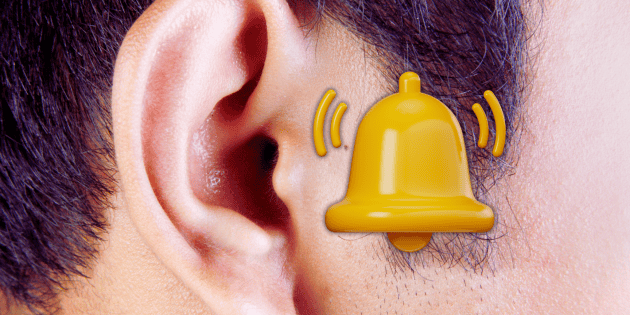Debunking misconceptions about eggs: Is it healthy to eat one every day?

The egg is one of the most complete foods and a staple of the Mediterranean diet. In fact, without it, one of the most typical dishes of Spanish cuisine wouldn't exist: the potato omelet .
Although it's very healthy, it's still haunted by some myths : you can only eat two or three eggs a week, or they're harmful to your cardiovascular health. On the occasion of World Egg Day, INFOVERITAS debunks some of the false beliefs that still haunt this food.
Brown eggs are better than white onesFalse. " The color of the eggs is determined by the breed of the bird ," says Emilio de la Peña, a member of the Education Committee of the Official College of Dietitians-Nutritionists of the Valencian Community (CODiNuCoVa) and a dietitian-nutritionist, but "one is not better than the other," points out Alba López, a dietitian and nutritionist at the Júlia Farré Nutrition and Psychonutrition Center (Barcelona).
In fact, when it comes to nutritional composition, there are no differences between brown and white eggs . "What best defines the quality of an egg is the diet that the hen has received, regardless of its breed," adds Alba López Planas.
Eggs must be kept in the refrigerator by obligation.Iñaki Elío, secretary of the College of Dietitians-Nutritionists of Cantabria (CODINUCAN), points out that eggs "stay in perfect condition as long as they are kept at a temperature below 25ºC."
The key to good egg preservation is that they are "at a stable temperature, avoiding sudden temperature changes," he indicates. Alba López, dietitian and nutritionist at the Júlia Farré Nutrition and Psychonutrition Center . "That's why supermarkets sell them at room temperature, because the temperature there remains stable," this expert adds.
Therefore, storing eggs in the refrigerator is not mandatory, but it does offer certain advantages: "It can prevent exposure to bacteria by preventing the protective layer of the shell from breaking due to sudden changes in temperature. In addition, it increases their conservation even for a few days after the best-before date," says the Spanish Nutrition Federation (FEN).
Before eating boiled eggs, wash them with cold water.False. Once an egg is cooked, it's not necessary to wash it with water because it damages the impermeable layer. "Given the porosity of the shell, we would be facilitating the entry of dirt and germs into the egg," explains Alba López, dietitian and nutritionist at the Júlia Farré Nutrition and Psychonutrition Center.
In the case of not having consumed the boiled egg at the moment and having stored it, maximum seven days, "it is important to have maintained adequate temperature and hygiene conditions ", points out the Spanish Nutrition Federation (FEN).
Cannot be eaten after the best before date.According to the Egg Research Institute , eggs can be eaten a few days after the best-before date as long as they have been kept refrigerated and the shell is intact and clean.
The best-before date for eggs is not the expiration date; it is set 28 days after laying. Beyond this date, the food will no longer retain its expected quality (flavor, texture, smell, etc.).
"This does not mean that an egg cannot be consumed within days of the best-before date, as long as it has been stored under optimal conditions (temperature, humidity, cleanliness, etc.)," clarifies the dietitian and nutritionist. Emilio de la Peña.
However, the Egg Research Institute advises eating fresh eggs when cooked at a lower temperature. " Less fresh eggs should be eaten thoroughly cooked , until they are completely set," they add.
Eggs are a food with a lot of cholesterol.Although eggs have been criticized in the past regarding their cholesterol content and how it affects health, "current studies actually show that egg consumption is not harmful to cardiovascular health ," explains Alba López. "Although they contain cholesterol, about 385 mg per 100 g of egg, it is not the cholesterol intake present in certain foods that determines our blood cholesterol level or our cardiovascular health," she emphasizes.
Having high cholesterol levels is mainly related "to a sedentary lifestyle and an unbalanced diet," highlights the Spanish Nutrition Federation.
It is advisable to consume less than three eggs a weekThere is still some debate about how many eggs we can consume per day . Expert Iñaki Elío He explains that, if you don't have cholesterol problems, you follow a diet low in saturated fats, rich in fiber, and you practice physical activity, " you can consume up to 1 egg a day ."
"Recent studies have shown that eggs are a very healthy food, thanks to their protein, fat, vitamin, and mineral profile. There is no problem in consuming up to one egg a day, or even two, as part of a balanced diet ," he emphasizes. Alba López, from the Júlia Farré Center.
They are good for the eyesightTrue. Egg yolks contain vitamin A, lutein, zeaxanthin, and zinc, which are vital for eye health. "Vitamin A protects the cornea, lutein and zeaxanthin reduce the risk of serious eye diseases, and zinc contributes to retinal health," according to the FEN.
In fact, there are studies that seem to show that consuming these pigments could be linked to less age-related macular degeneration , explains Emilio de la Peña, a member of the Education Committee of the Official College of Dietitians-Nutritionists of the Valencian Community (CODiNuCoVa).
20minutos





